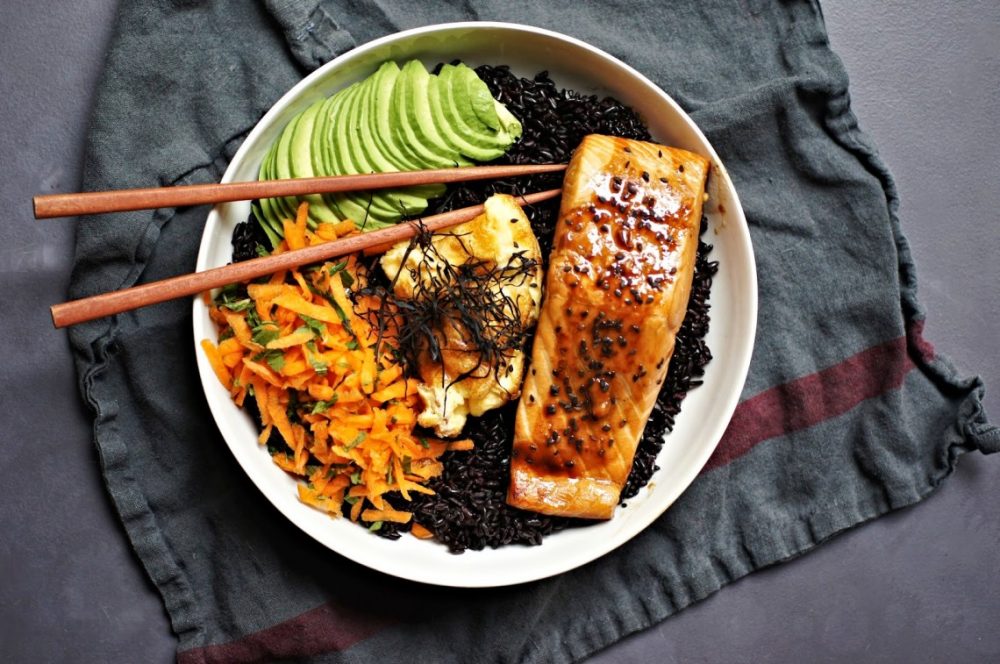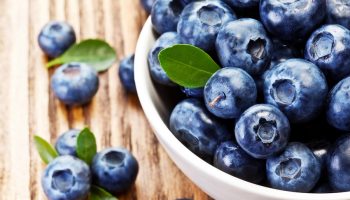Forgetfulness, lack of orientation, cognitive decline … these are some of the symptoms of Alzheimer’s disease (AD). Now researchers from the University of Ulm, among them the Epidemiologist Professor Gabriele Nagel and the Neurologist Professor Christine von Arnim, have discovered that the serum-concentration of the antioxidants vitamin C and beta-carotene are significantly lower in patients with mild dementia than in control persons.

Alterations in the brain caused by amyloid-beta-plaques, degeneration of fibrillae and a loss of synapses are held responsible for the characteristic symptoms.
Nutrition plays an important role in maintaining physical and mental health.
- Vitamin C– “The concentration of vitamin C in the serum of AD-patients was significantly lower than in the blood of control subjects.” according to a study conducted by researchers from the University of Ulm. Vitamin C can, be found in citrus fruits.
- Beta-carotene (vitamin A)- Taking supplements of the antioxidant beta carotene for a long time — 15 years or more — appears to lessen the decline in thinking ability that comes with Alzheimer’s disease, a study finds. Carrot is the No. 1 source of this essential nutrient. A three-quarter cup of carrot juice has 1,692 mg of the nutrient and 71 calories. Half a cup of cooked carrots has 671 mg of vitamin A and just 27 calories.
- Vitamin B12– Researchers in the Oxford Project to Investigate Memory and Aging (OPTIMA) found that elderly adults with low vitamin B12 levels had more than four times the usual risk of Alzheimer’s. When vitamin B12 levels are low, blood levels of homocysteine rises, significantly increasing the risk for dementia, heart attack ad other ailments. Rich sources of vitamin B12 are seafood and animal sources including oysters, mussels, fish, shrimps, scallops, liver of most animals and beef. Lower levels of vitamin B12 can also be found in seaweeds, yeasts and fermented foods like miso and tempeh. Also, adult over the age of 50 tend to suffer from atrophic gastritis, whereby the stomach lining thins and the amount of Vitamin B12 absorbed by the small intestine is reduced.
- Flavonoid- Are a family of chemicals that have been widely studied for a variety of health benefits. They are powerful antioxidants and occur in high concentrations in a variety of fruits and vegetables, particularly citrus fruits, berries, grapes, onions, parsley and legumes. Other good sources include tea (especially green and white), red wine, dark chocolate, ginkgo biloba and seabuckthorn. Studies carried out by Norwegian researchers found that the flavonoids in cocoa increase blood flow to the brain and may help to protect against conditions with reduced cerebral blood flow like dementia and stroke. A good rule of thumb is that the more colorful a fruit or vegetable is, the higher the levels of flavonoids. Green tea is rich in a type of flavonoid known as catechins which can reach as high as 1 gram in a single cup.

- Omega 3 fatty acid- According to a study conducted by Tufts University in Boston, subjects who consumed an average of three servings of oily fish a week had almost 50 percent lower risk of Alzheimer’s disease and dementia. These individuals had significantly higher levels of omega-3 fatty acid docosahexaenoic acid in the blood than those who took less fish in their diets. For people who don’t eat fish, walnuts, flaxseeds and dark green leafy vegetables are rich in plant-based omega-3 precursor, alpha-linolenic acid (ALA). But they lack eicosapentaenoic acid (EPA) and docosahexaenoic acid (DHA), the two primary omega-3’s.
- Anthocyanins- Cherries derive their bright red color from anthocyanins. They possess anti-inflammatory properties that could work like pain medications such as Vioxx and Celebrex, but without the nasty side effects. Blueberries, raspberries and strawberries are packed with antioxidants and anti-inflammatory phytochemicals that help to reduce brain inflammation and brain oxidative stress, both of which have been associated with dementia.
- Vitamin E- Good dietary sources of vitamin E include wheat germ, some green vegetables (including broccoli and spinach), nuts (including almonds and hazelnuts) and vegetable oils (including safflower and sunflower oil). It is unlikely that people could get too much vitamin E from food. However, high doses of vitamin E from supplements carry a risk of bleeding. Experts advise that adults consume no more than 1,000 mg of vitamin E per day.
- Co-enzyme Q-10- Coenzyme Q10 showed a significant memory-enhancing effect in mice that was indicated by a significant increase in escape latency time in the passive avoidance model and a decrease in escape latency time in Morris water maze test at 50 & 100 mg/kg dose levels. Treatment with the same doses of Coenzyme Q10 in mice showed a decrease in MDA, Glutamate, and NO levels and an increase in GSH levels in brain tissue homogenates. This suggests that the antioxidant activity of the drug may prevent oxidative neuronal damage in the brain and therefore may be responsible for the anti-amnesic effect of Coenzyme Q10. Animal-based protein sources are considered rich sources of coenzyme Q-10. Red meats fall into this category and include beef, poultry, and fish. For instance, a standard 3-ounce serving of fried beef will supply you with 2.6 milligrams of the nutrient. Rich poultry sources include chicken and turkey. According to the USDA, a 3-ounce serving of fried chicken will contain 1.4 milligrams of the needed nutrient. Although preliminary research is still inconclusive, some preliminary evidence shows that CoQ10 capsules may help to avoid or treat the side effects of statin-type cholesterol medicines, such as muscular discomfort and liver difficulties.

- Lycopene- A 1999 study of antioxidants (a-carotene, b-carotene, lycopene, Vitamin A, Vitamin C, and Vitamin E) examined 79 patients with Alzheimer’s disease, 37 patients with vascular dementia, 18 patients with Parkinson’s disease and dementia, and 58 matching controls, together with 41 patients with Parkinson’s disease and 41 matching controls. Significant reductions in individual antioxidants were observed in all dementia groups. The reduction in plasma chain-breaking antioxidants in patients with dementia may reflect an increased free-radical activity, and a common role in cognitive impairment in these conditions. 95% of lycopene intake comes from tomatoes and tomato products in our diet. It can also be found in watermelon, pink grapefruit, papaya, and rosehip.
The researchers, however, say that more studies need to be done to confirm these results.
References:
- http://www.naturalnews.com/
- http://www.ncbi.nlm.nih.gov
- http://www.sciencedaily.com/
- http://theconsciouslife.com/
- https://www.lap-publishing.
com/
Disclaimer
The Content is not intended to be a substitute for professional medical advice, diagnosis, or treatment. Always seek the advice of your physician or other qualified health provider with any questions you may have regarding a medical condition.



